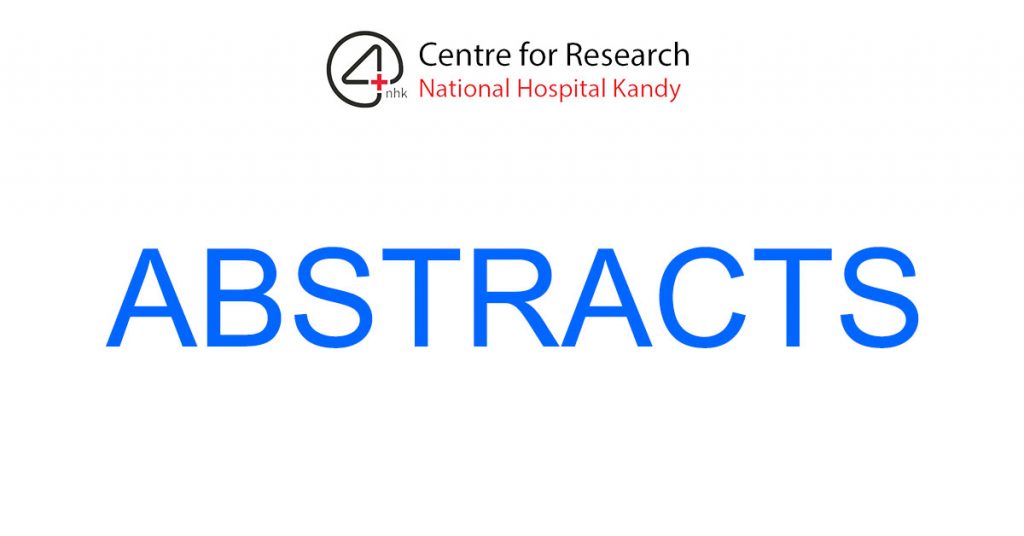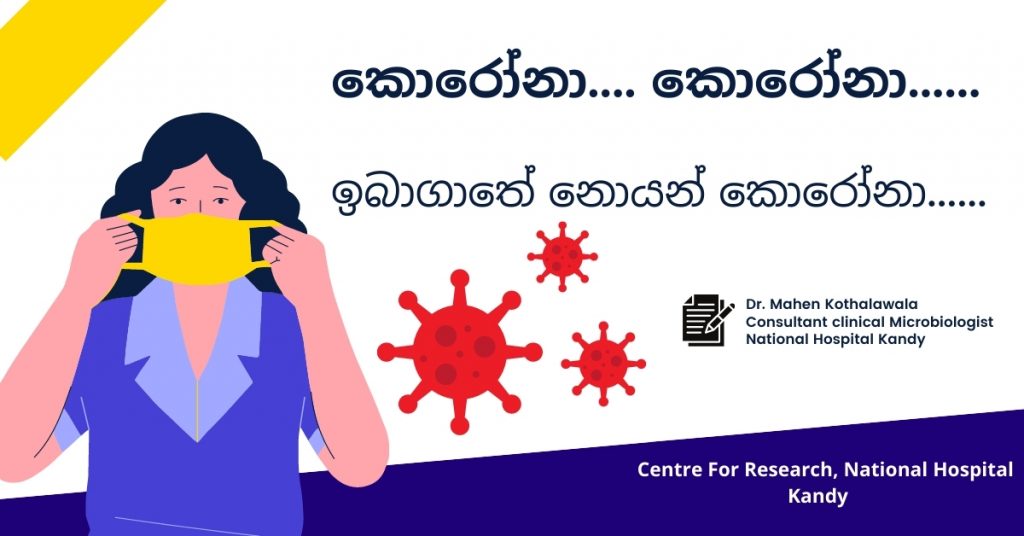M.A.A. Nayanamali2*, A.M.M.P. Athapaththu1, B.M.D.B. Basnayake2, T.G.N.S. Gunarathne4, A.W.M. Wazil2, R.M.B.S.S. Mahanama2, B.M.D.B. Basnayake2, B.U.E.W.D.R. Thangarajah3, N. Nanayakkara2
1Department of Nursing, Faculty of Allied Health Sciences, University of Peradeniya
2Nephrology and Transplant Unit, National Hospital, Kandy
3Nephrology unit, Teaching Hospital, Vavuniya
4University of Malaya, Kuala Lampur, Malaysia
Background: Post kidney transplant (PKT) infections are associated with significant morbidity and mortality; especially in the early post-transplant period. Even though types of infections, risk factors and outcome of the infections are essential for proper management, scientific data, especially in local settings is lacking. This study was carried out to assess the epidemiology, risk factors and major outcomes of hospitalization requiring PKT infections.
Methods: This is a prospective observational study, conducted in Nephrology and Transplant unit, National hospital Kandy during a period of two months from 1st of December, 2018 to 30th of January, 2019
Results: A total of 38 infectious episodes were recorded in 35 kidney recipients. The commonest type of infection was urinary tract infection noted in 36.6% (n=14) of cases. The most frequent organisms isolated were coliform (7.9%, n=3). Seven potential risk factors including age, gender, co-morbidities, source of kidney, induction modality, enhancement therapy and months after renal transplant were evaluated to assess the risk of acquiring PKT infections. Among those potential risk factors, age was significantly associated with the Gastro-intestinal tract infections (P =0.033)/ (p<0.05). There was a significant association found between the gender and the severity of infections (P=0.047)/ (p<0.05). Majority of the participants left the hospital after full recovery. Three were transferred to Intensive care, two were subjected to acute renal failure and one was dead.
Conclusion: Infections are a major complication in kidney transplanted patients. Instead of assessment of consequences of PKT infections, this necessitates a prospective cohort study to conclude the findings.
Key Words: Kidney Transplantation, immunosuppression, infections, Sri Lanka


